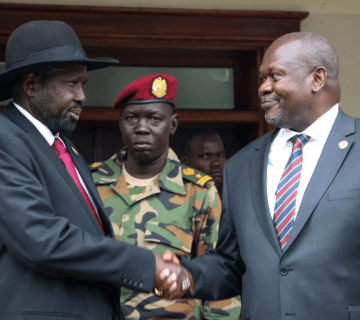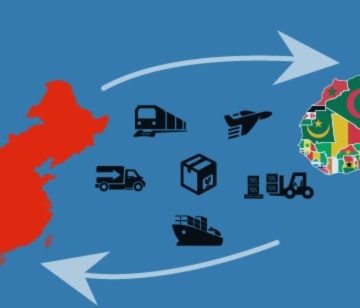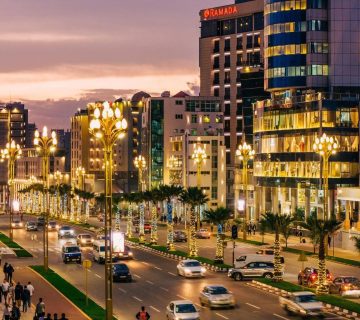The general elections in South Sudan are scheduled for December 22, 2024, a crucial date in the turbulent history of the nation. After decades of civil conflict with Sudan, South Sudan declared its independence in 2011, and this will be its first national election since then. These elections are extremely important because they are a critical step toward stabilizing the peace, promoting stability, and opening the door for long-term sustainable growth. The election process is viewed as a yardstick for evaluating South Sudan’s dedication to peacekeeping and democratic governance. The upcoming elections have the power to change the political landscape and determine the direction of the country, which is still recovering from years of conflict and economic upheaval. But the success of these elections depends on a number of things, one of which is the nation’s capacity to overcome the many obstacles that have weakened its electoral systems in the past.
Historical Context of Elections in South Sudan
The history of elections in South Sudan is closely linked to the country’s fight for peace and independence. The majority of South Sudanese voters supported secession in the historic 2011 referendum that resulted in the nation’s independence from Sudan. The joy of independence, however, was fleeting as the nation quickly entered a civil war in 2013, undermining later attempts to hold legitimate elections. Political unrest, security issues, and logistical difficulties have clouded the election processes. The country’s electoral landscape has been significantly shaped by peace agreements, especially the Comprehensive Peace Agreement (CPA) and the Revitalized Agreement on the Resolution of Conflict in South Sudan (R-ARCSS). The 2018 R-ARCSS was crucial in putting an end to the civil war and preparing the way for the next elections, despite numerous obstacles and delays in its execution.
Upcoming Elections in South Sudan
Concerns about South Sudan’s preparedness for the elections in December 2024 are becoming more pressing. The nation is still in a fragile state even after a peace deal was signed five years ago. The fragile security situation, low voter turnout, and inadequate election infrastructure are among the issues raised by the UN security envoy to South Sudan, who has expressed concerns about the country’s lack of readiness for the polls. The broken pipeline to Sudan and the South Sudanese pound losing 70% of its value have made the country’s economic problems worse and caused widespread hardship. Additionally, voting is made more difficult in South Sudan due to the country’s high reliance on humanitarian aid. A large number of the population are internally displaced and live-in camps or isolated areas, making it difficult to get to polling places. Because basic survival takes precedence, the pervasive poverty and food insecurity also deflect attention away from civic engagement. Participation may also be further hampered in aid-dependent areas by a lack of infrastructure and resources required to facilitate a fair electoral process, such as voter registration and ballot delivery. The absence of political and electoral reforms, in addition to persistent conflicts and unstable economic conditions, casts significant doubt on the ability to hold free, fair, and peaceful elections.
The UN Security Envoy to South Sudan has expressed grave concerns about the country’s preparedness for the upcoming elections. The envoy highlighted the fragile security situation, noting that ongoing conflicts and instability pose significant risks to a peaceful electoral process. Additionally, the lack of progress in voter registration and the absence of essential election infrastructure are critical issues. The envoy also pointed out that the peace agreement signed five years ago has not been fully implemented, further undermining election readiness. Economic challenges, including a collapsing currency and reliance on humanitarian aid, exacerbate the situation, making it difficult for the country to conduct credible elections.
Challenges Facing the Upcoming Elections
There are substantial political, security, logistical, and human rights challenges associated with the upcoming elections in South Sudan. Deep-seated political party divisions and the ongoing conflict pose a serious threat to the electoral process, raising the possibility of violence. Organizing a credible election is challenging due to the nation’s logistical problems, which include low voter registration, inadequate election infrastructure, and bottlenecks in the system. Human rights issues add to the complexity of the situation by creating obstacles for participation for marginalized groups like women, minorities, and displaced people. Press and speech freedoms are also threatened, which makes it harder for voters to make educated election decisions. The reluctance of the ruling powers in South Sudan to hold elections, establish independent oversight bodies, combat corruption, or develop a professional military is arguably the biggest obstacle to holding successful elections. While the people of South Sudan desire these elections, the actions of those in power have hindered progress and the establishment of essential electoral reforms.
Potential Outcomes of the Elections
Peaceful and stable post-election conditions could be brought about by successful elections, promoting national unity and facilitating the nation’s progress. The legitimacy of the electoral process will be established by the fair and transparent conduct of the elections, which will be facilitated by the involvement of international observers and the international community. Cooperation between the international community and South Sudanese stakeholders is necessary to reduce risks and promote a credible and peaceful electoral process.
Conclusion
In conclusion, the upcoming elections in South Sudan represent an important turning point, but issues like a lack of political will, concerns about security, and unstable economic conditions need to be resolved. Crucial measures include strengthening governance, supporting security through peacekeeping, and stabilizing the economy through international assistance and regional collaboration. Voter registration and electoral infrastructure reforms are necessary to guarantee inclusive participation, particularly for underrepresented groups. South Sudan can move toward a credible and peaceful electoral process by utilizing regional frameworks such as the African Peace and Security Architecture (APSA) in addition to domestic reforms.



